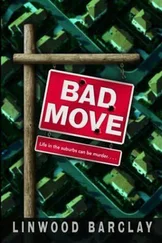After that, he returned to the palace, under the impression that he’d been invited to spend the night there. At the entrance he was met by the doorman who handed him his little black bag. The doorman intimated he’d better go to the hotel.
Lacerda tells of the ride back to the hotel as one of the worst moments of his life. He was oppressed by the vast loneliness of the unfinished city, the great buildings with nobody in them, the ghost town look. There was a Nazi atmosphere about the crazy scene at the palace, the incoherence, the drinking, the silly movie. From his hotel room he called up one of the ministers he’d been talking to before. The minister came to his room. They argued until four in the morning. Lacerda insisted that this sort of thing couldn’t go on. It was the Stalin way of running a country. The minister told him the President said to go to hell.
Lacerda flew back to Rio the next day. A couple of days later he had a date to lecture to university students in São Paulo. He tried to make a figurative speech as a warning to Jânio. An organized group kept interrupting him, shouting, “ Jânio sim, Lacerda não .”
This was for Lacerda a period of terrible indecision. He couldn’t sleep nights. Then on August 24, the anniversary of the downfall of Getúlio Vargas, he made up his mind. That night he spoke to the nation over TV. He told the whole story of the trip to Brasília, his frustration, the efforts to induce him to fall in with Jânio’s plans. “The man we elected doesn’t want to be President, he wants to be dictator.”
Next day Jânio Quadros resigned. With his resignation he gave out a confused statement that hidden interests at home and abroad were sabotaging his program. He may have thought that a wave of popular outbursts would force the congress to ask him to reconsider his resignation. There was no such outburst. A few months later Adhemar de Barros, who is not lacking in humor, announced on television that he didn’t know about the sinister domestic interests that had ruined Quadros’ program, but he could name the foreign interests. They were Haig & Haig, Teacher’s, Johnnie Walker, and so forth.
Quadros’ resignation left João Goulart, Vargas’ political heir, the President of Brazil. All parties, except for the left wing of labor and the Communists, were thrown into dismay. Congress, under the influence of the Democratic Union, immediately started tinkering with the constitution. The President was shorn of his powers. The executive power was placed in the hands of a Prime Minister responsible to the Chamber of Deputies.
Politically the period between Quadros’ resignation in the summer of ’61 and the October elections in the fall of ’62 was the story of a continuous tug of war between the leaders of the Democratic Union, who wanted ministerial government, and the Labor Party men who wanted full presidential powers restored to their leader. National administration was at a stalemate, with the result that no constructive legislation could be passed. Inflation went unchecked. The cost of living soared. In spite of occasional hikes in the minimum wage, the middle classes were pinched and working people’s families went hungry. In the hinterlands the unemployed starved.
The Reactionary Governor of Guanabara
After his crucial television speech Lacerda says he was at last able to sleep soundly in his bed. He awoke to a chorus of praise and vituperation. Jânio Quadros’ resignation was as great a shock to the Brazilian electorate as Vargas’ suicide. Men and women of all levels of society had placed their hopes in his hands. The first reaction was of despair.
The conservative newspapers came around to the view that, shocking as it was, Lacerda’s unmasking of Quadros saved Brazilian democracy. The leftwing press, led by the dashingly edited Ultima Hora with its nationwide circulation, claimed that having brought about Vargas’ death the reactionary governor of Guanabara had now deprived the country of the services of its most dedicated reformer. The man was a monster. Some people have been called kingmakers. Lacerda was the destroyer of presidents.
No man loves a fight more. Breathing deep of the dust of battle Lacerda threw himself into an almost nightly vendetta over television with the supporters of President Goulart. As the campaign for the congressional elections of 1962 neared its climax, he seemed to foreign observers to be engaged in a sort of hand to hand combat over the airwaves with Leonel Brizola, the President’s brotherinlaw.
Brizola was nearing the end of his term as governor of Rio Grande do Sul. In spite of the backing of some of Vargas’ henchmen in the state which had been the center of the old dictator’s political web, his administration had been so unpopular that he was facing a voters’ revolt at home. By following the anti-American line in Guanabara, where there was a compact Communist-inspired vote, he would be sure of election to the Chamber of Deputies. By bearding Lacerda in his own citystate he could hope to win national leadership of the Brazilian Labor Party.
So long as he was governor of Rio Grande do Sul, Brizola could use other weapons than oratory. A severe drought had resulted in a scarcity of rice and beans throughout the northern and central part of Brazil. Rio Grande do Sul had a surplus. Brizola could use his control of his home state’s export of vital foods to cut off supplies from Guanabara. Beans and rice are basic articles in the diet of all classes in Brazil. The rich can eat other things. If the poor can’t get beans they go hungry. The sight of long queues waiting for beans and rice in markets and foodstores was a more cogent argument against Lacerda’s administration than all the oratory in the world.
While Brizola, supported by an active political organization which controlled the flow of cash to labor unions and students’ organizations, fought Lacerda over the air, his brotherinlaw’s administration in Brasília made life as hard as possible for the state of Guanabara. Everything the federal government could do was done to sabotage Lacerda’s program.
It was a mighty struggle. Lacerda’s capacity for work has always been prodigious. While he carried on the debate with Brizola in almost nightly television appearances, he worked all day superintending every detail of his rebuilding of Rio. He wore out secretaries and assistants. He had to prove to himself and to the world that his plans for the “marvelous city” were not just politicians’ talk. He had to show results that the voters could see.
As governor he lives on the top floor of an old apartment house facing the bay in a somewhat rundown residential section known as Flamengo Beach. First thing in the morning he’s out on the balcony looking down to see how the work is going on one of his favorite projects.
Early in his governorship he took steps to insure the public use of a large area of made land through which the new four-lane highway runs from the downtown district out along the bay shore to Copacabana and the new seabeach suburbs. He wants to develop this region into a park which will surpass in beauty the old parks that are part of the imperial heritage, and, at the same time furnish playgrounds, small boat harbors, soccerfields and beach facilities for the city’s growing population.
To superintend the project he appointed a committee under the active management of his old friend Lota de Macedo Soares. As a great hostess Dona Lota numbered among her personal cronies many of the world’s best architects and sculptors and townplanners. A small woman in black striped pants, she drives them with fair words, but she drives them hard. She has Burle Marx, Brazil’s most internationally admired landscape architect, doing the overall design and has dragged in the best talent in the country to help. Many of them work without pay. They’ll tell you that not a tree is planted, nor a stretch of shrubbery set in position which escapes the governor’s early morning gaze. Usually he’s after Dona Lota on the phone before eight o’clock to find out why some part of the work isn’t going along faster.
Читать дальше












